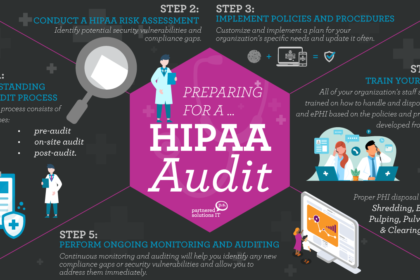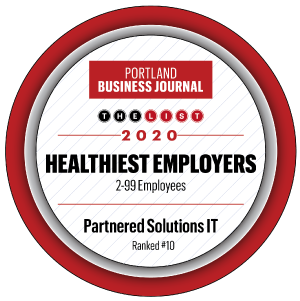
As technology continues to play a significant role in the healthcare industry, maintaining compliance with the Health Insurance Portability and Accountability Act (HIPAA) is more critical than ever. Failing to comply with HIPAA regulations can lead to severe financial and reputational damages for medical practices, making it crucial for these organizations to prepare for a potential audit.
Preparing for a HIPAA audit can be a daunting task, but with the right approach, your medical practice can pass with flying colors. In this blog post, we’ll provide you with a comprehensive guide on how to prepare for a HIPAA audit and ensure that your practice is fully compliant with the latest HIPAA regulations. From conducting a risk analysis to implementing the necessary policies and procedures, we’ll cover everything you need to know to prepare for and pass a HIPAA audit.
Step 1: Understand the HIPAA Audit Process
Before you start preparing for a HIPAA audit, it’s essential to understand the audit process. The Department of Health and Human Services (HHS) Office for Civil Rights (OCR) conducts HIPAA audits to ensure that healthcare providers comply with HIPAA regulations. The audit process consists of three phases: the pre-audit, the on-site audit, and the post-audit.
Step 2: Conduct a HIPAA Risk Assessment
The first step in preparing for a HIPAA audit is conducting a HIPAA risk assessment. A risk assessment will help you identify your organization’s potential security vulnerabilities and compliance gaps. You should assess all areas of your organization that involve the use, storage, or transmission of protected health information (PHI).
Step 3: Develop and Implement HIPAA Policies and Procedures
Based on the results of your risk assessment, you should develop and implement HIPAA policies and procedures that address the identified risks and compliance gaps. Tailor your policies and procedures to your organization’s specific needs and should and update them often.
Step 4: Train Your Staff on HIPAA Policies and Procedures
Once you’ve developed your HIPAA policies and procedures, training your staff on them is crucial. HIPAA requires that all staff members who handle PHI receive regular training on HIPAA regulations, policies, and procedures.
Step 5: Perform Ongoing Monitoring and Auditing
Finally, it’s important to perform ongoing monitoring and auditing. This ensures your organization complies with HIPAA regulations. Continuous monitoring and auditing will help you identify any new compliance gaps or security vulnerabilities and allow you to address them immediately.
Following these five steps, you can prepare for a HIPAA audit and ensure your organization complies with HIPAA regulations. But, it’s important to note that preparing for a HIPAA audit is an ongoing process. You should continually check and update your policies and procedures.
At PSIT, we offer vulnerability scans and remediation services to help healthcare providers prepare for HIPAA audits and maintain compliance. Our team of experts can help you identify and address potential security vulnerabilities and compliance gaps, develop customized policies and procedures, and train your staff on HIPAA regulations. Contact us today to learn more.







